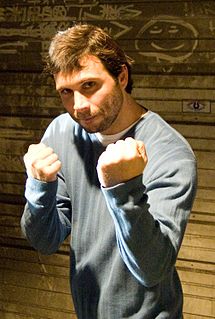A Quote by Ray Dalio
Remember that experience creates internalization. Doing things repeatedly leads to internalization, which produces a quality of understanding that is generally vastly superior to intellectualized learning.
Related Quotes
Acceptance is approval, a word with a bad name in some psychologies. Yet it is perfectly normal to seek approval in childhood and throughout life. We require approval from those we respect. The kinship it creates lifts us to their level, a process referred to in self-psychology as transmuting internalization. Approval is a necessary component of self-esteem. It becomes a problem only when we give up our true self to find it. Then approval-seeking works against us.
The African Americans' story is one that seems to be a repeated commitment to a scenario for success and failure. With each failure, the blow is that much more traumatizing until finally one reaches a point where there is to some degree an internalization, skepticism, fatalism, and expectation that it isn't going to work.
Quality doesn't mean deep blacks and whatever tonal range. That's not quality, that's a kind of quality. The pictures of Robert Frank might strike someone as being sloppy-the tone range isn't right and things like that-but they're far superior to the pictures of Ansel Adams with regard to quality, because the quality of Ansel Adams, if I may say so, is essentially the quality of a postcard. But the quality of Robert Frank is a quality that has something to do with what he's doing, what his mind is. It's not balancing out the sky to the sand and so forth. It's got to do with intention.
To come to faith on the basis of experience alone is unwise, though not so foolish as to reject faith altogether because of lack of experience ... the quality of a Christian's experience depends on the quality of his faith, just as the quality of his faith depends in turn on the quality of his understanding of God's truth.
Man is not the source of all things, as the subjective idealists would say. Nor is he the passive observer of all things, as the objective idealists would say. The Quality which creates the world emerges as a relationship between man and his experience. He is a participant in the creation of all things. The measure of all things.
What is wrong with encouraging students to put "how well they're doing" ahead of "what they're doing." An impressive and growing body of research suggests that this emphasis (1) undermines students' interest in learning, (2) makes failure seem overwhelming, (3) leads students to avoid challenging themselves, (4) reduces the quality of learning, and (5) invites students to think about how smart they are instead of how hard they tried.



































